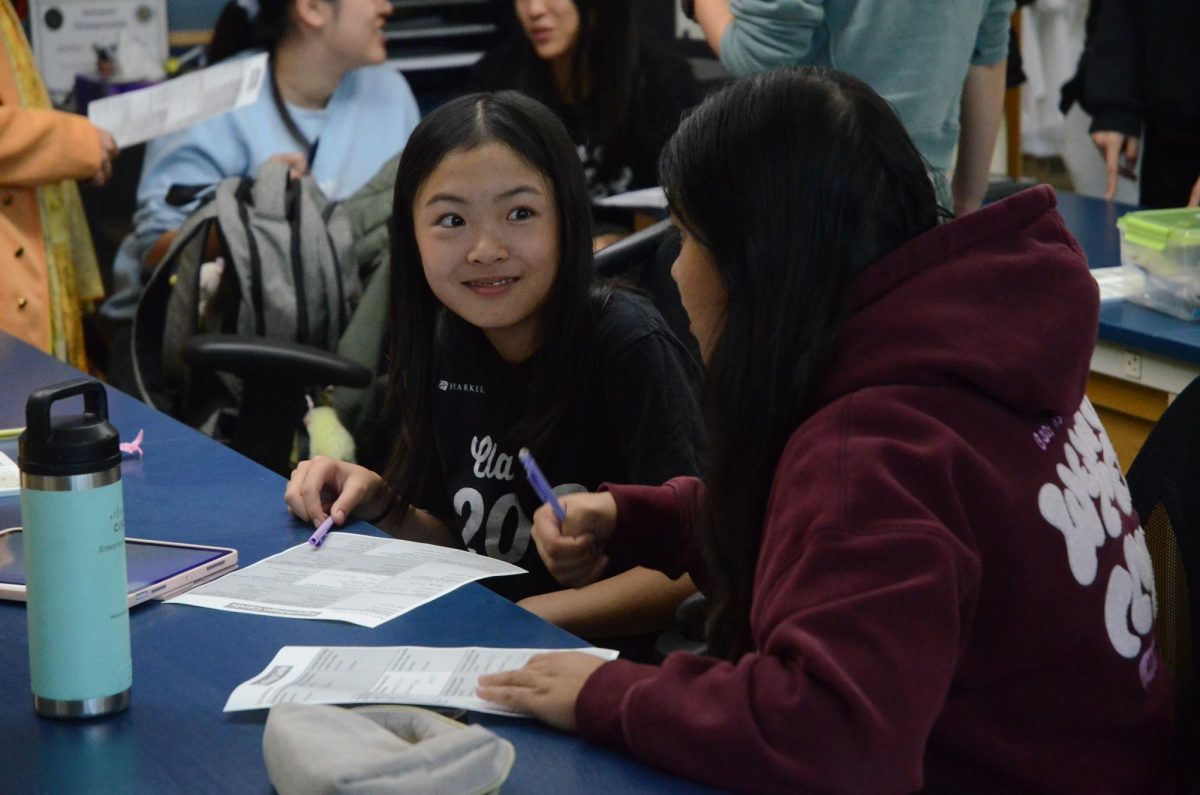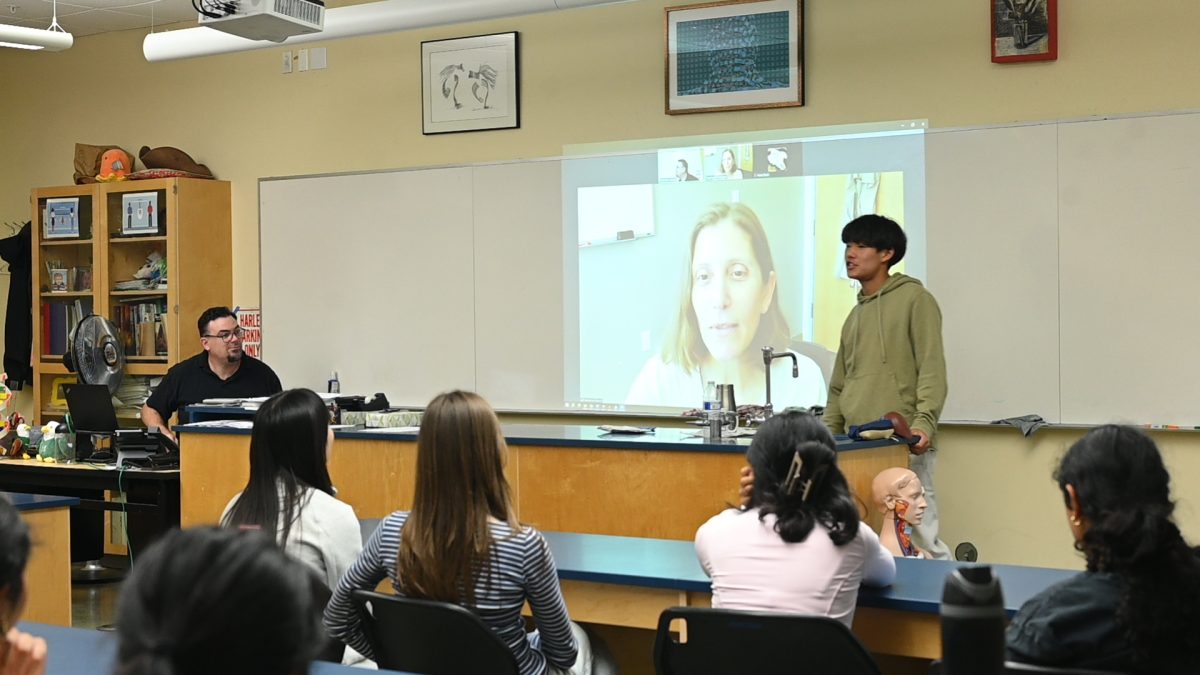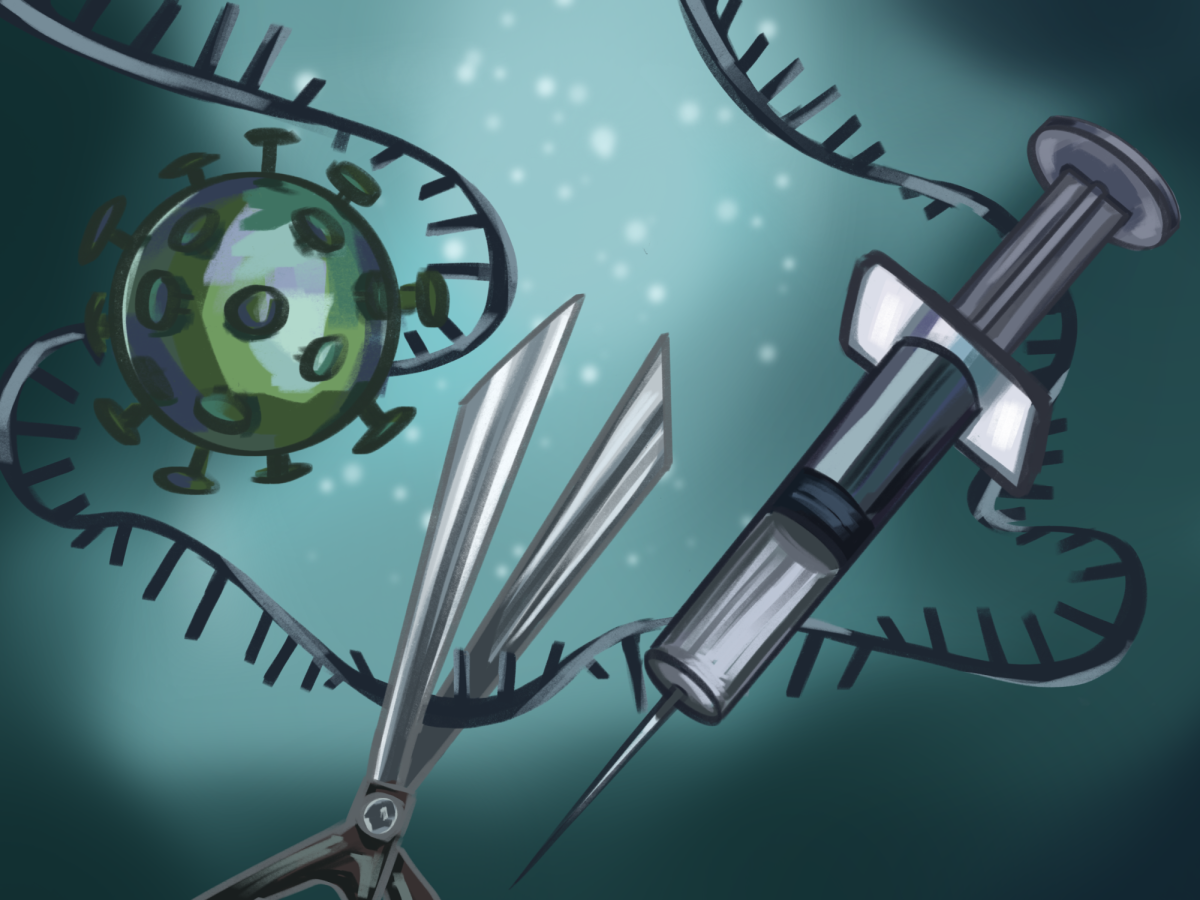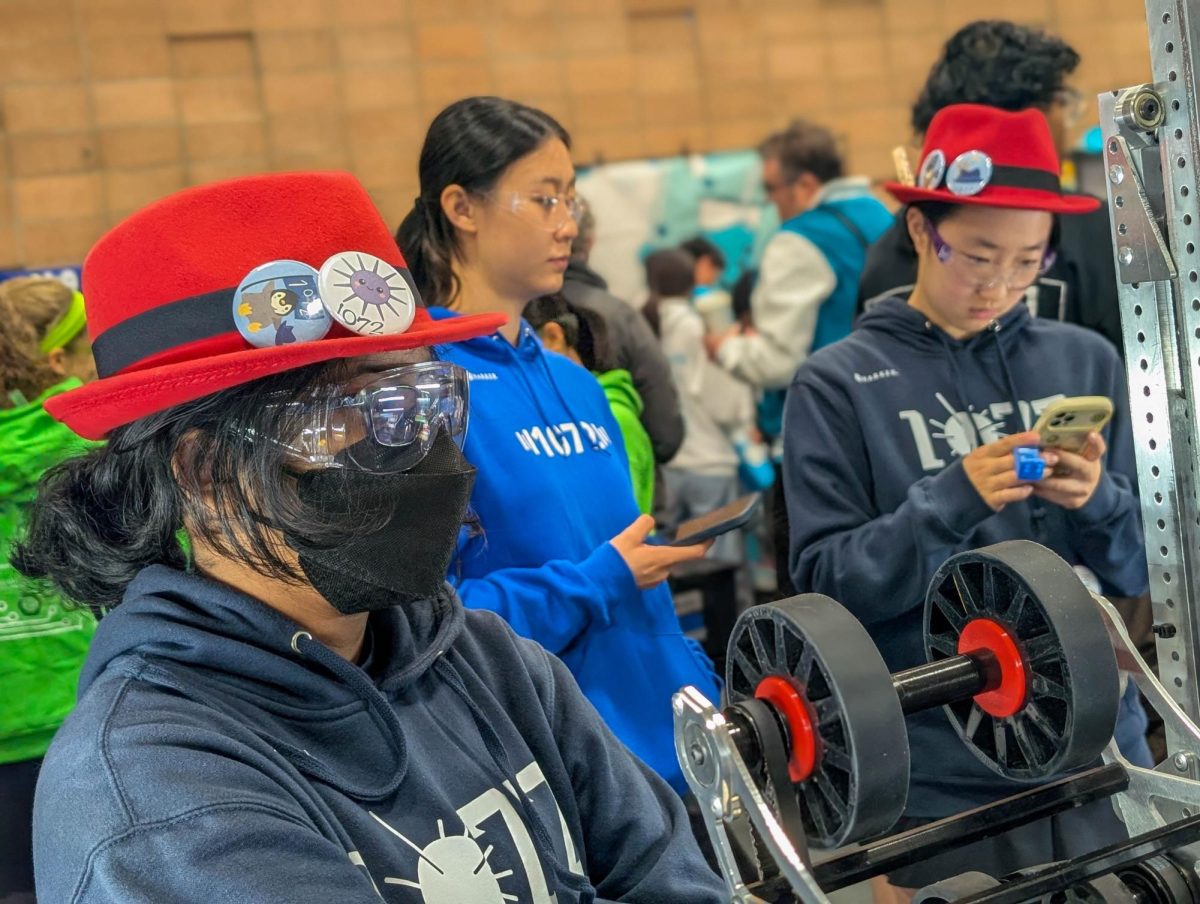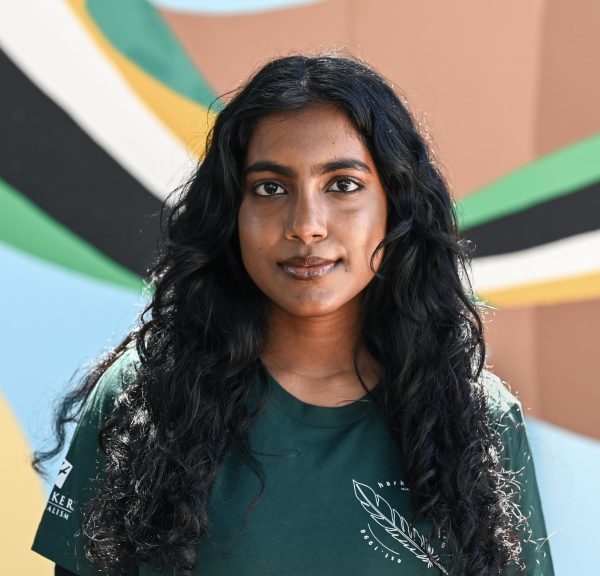Meta’s recent announcement of Instagram Teen Accounts, its latest addition to Instagram, comes following a rise in concern over child safety online. In their announcement, Meta detailed changes that hint at a broader shift in social media companies regarding online safety.
Teen Accounts monitors content and limits which users can directly contact teens. Teens under 16 need parental approval to modify restrictions set by Teen Accounts. The account seeks to provide teens with a safe online environment in which they consume only safe, friendly content and freely use Instagram while being safeguarded from any unknown individuals online.
Academic counselor Kelly Leahy-McKeown agreed with the concept of limiting teens’ unrestricted access to social media throughout the day, as well as the monitoring of content. McKeown urged awareness over the possibility of social media taking away from a student’s personal development.
“If you’re scrolling through everyone else’s ‘avatar,’ you’re comparing your own,” Mckeown said. “Developing self identity is really critical, and without that, people can roll into depression, anxiety, loneliness. They might feel very alone because the more time they spend creating their image, the less time they’re in real life with people.”
However, the impacts of social media do not stop at loneliness and depression. Exposure to abusive and exploitative content remains a possibility on platforms like Instagram.
Teen Accounts notably followed a barrage of scrutiny in early 2024 from the EU, when they announced their investigation into whether Meta’s platforms “stimulate behavioral addictions in children.’” The announcement came after the groundbreaking Digital Services Act, an EU law seeking to advance child safety. In New Mexico, the attorney general sued Meta over allegations that Meta-owned platforms enabled sex trafficking and exploitation.
Over 30 states joined a federal suit last year against Meta for its alleged exploitation of young people which they claimed continues to fuel the youth mental health crisis. Citing Meta’s recommendation algorithm, which guides users towards viewing content they specifically enjoy, the suit sought to declare Meta’s features unlawful and demand change to Meta-owned platforms.
Psychology club officer Alexis Leo (10) acknowledged Meta’s history of failing to fully account for cases of child exploitation on its platforms. Child exploitation facilitated by parents also remains an important issue on platforms like Instagram.
“The Teen Account has a good thought behind it, but I think that social media needs to step up their game with policing accounts which involve using children to get views, clicks and likes,” Alexis said. “A lot of girls [are] posing in revealing clothing at 4 years old.”
Awareness over the dopamine-hooking features of social media platforms like Instagram to retain user engagement has also grown in recent years. In an effort to control the possibility of teens’ incessant use of the app, Teen Accounts contains a feature that turns off notifications from 10 p.m. to 7 a.m., provide reminders for a screen time break and set a time limit that can only be modified by parents.
Senior Naiya Daswani, a passionate researcher on mental health, commented on the effects of an unrestricted Instagram on time and productivity.
“There are addictive properties to social media; someone could be scrolling and not even realize hours have gone by,” Naiya said. “The parental control [which] sets daily app usage limits can help ensure social media usage isn’t compromising productivity or sleeping enough hours.”
While Teen Accounts appear a solid premise for tighter regulation of teens’ access to social media, Mckeown voicse the importance of parents’ role in social media regulation.
“I think parents are pressured by children, especially teenagers, to the point where some of them might make new decisions,” Mckeown said. “They wouldn’t keep the Instagram new guardrails in place, they would bypass it. They would let their kid have full access again.”
Fellow academic counselor Jonah Alves agreed with Mckeown, citing the importance of parental education concerning social media, instead of just students.
“There are definitely a lot of parents who are aware, but there are also a lot of parents who are not aware of how impactful social media is for their child,” Alves said. “We can only do so much in school, but it goes back to educating the parents. Because it’s likely most of those parents didn’t grow up with social media.”
Despite the many questions on boundaries and safety that millions of users grapple with each day, Alves reaffirmed the positive benefits of social media and urges others to view solutions with the viewpoint of fruitfully coexisting with technology, rather than simply accepting its harm.
“There are a lot of really great things about [social media], and again, it’s only going to continue to evolve,” Alves said. “It’s one of those things where I would really love to figure out, ‘How do we create healthier relationships with technology?’ rather than just assuming [the harms are] here to stay.”




![LALC Vice President of External Affairs Raeanne Li (11) explains the International Phonetic Alphabet to attendees. "We decided to have more fun topics this year instead of just talking about the same things every year so our older members can also [enjoy],” Raeanne said.](https://harkeraquila.com/wp-content/uploads/2025/10/DSC_4627-1200x795.jpg)


















![“[Building nerf blasters] became this outlet of creativity for me that hasn't been matched by anything else. The process [of] making a build complete to your desire is such a painstakingly difficult process, but I've had to learn from [the skills needed from] soldering to proper painting. There's so many different options for everything, if you think about it, it exists. The best part is [that] if it doesn't exist, you can build it yourself," Ishaan Parate said.](https://harkeraquila.com/wp-content/uploads/2022/08/DSC_8149-900x604.jpg)




![“When I came into high school, I was ready to be a follower. But DECA was a game changer for me. It helped me overcome my fear of public speaking, and it's played such a major role in who I've become today. To be able to successfully lead a chapter of 150 students, an officer team and be one of the upperclassmen I once really admired is something I'm [really] proud of,” Anvitha Tummala ('21) said.](https://harkeraquila.com/wp-content/uploads/2021/07/Screen-Shot-2021-07-25-at-9.50.05-AM-900x594.png)







![“I think getting up in the morning and having a sense of purpose [is exciting]. I think without a certain amount of drive, life is kind of obsolete and mundane, and I think having that every single day is what makes each day unique and kind of makes life exciting,” Neymika Jain (12) said.](https://harkeraquila.com/wp-content/uploads/2017/06/Screen-Shot-2017-06-03-at-4.54.16-PM.png)








![“My slogan is ‘slow feet, don’t eat, and I’m hungry.’ You need to run fast to get where you are–you aren't going to get those championships if you aren't fast,” Angel Cervantes (12) said. “I want to do well in school on my tests and in track and win championships for my team. I live by that, [and] I can do that anywhere: in the classroom or on the field.”](https://harkeraquila.com/wp-content/uploads/2018/06/DSC5146-900x601.jpg)
![“[Volleyball has] taught me how to fall correctly, and another thing it taught is that you don’t have to be the best at something to be good at it. If you just hit the ball in a smart way, then it still scores points and you’re good at it. You could be a background player and still make a much bigger impact on the team than you would think,” Anya Gert (’20) said.](https://harkeraquila.com/wp-content/uploads/2020/06/AnnaGert_JinTuan_HoHPhotoEdited-600x900.jpeg)

![“I'm not nearly there yet, but [my confidence has] definitely been getting better since I was pretty shy and timid coming into Harker my freshman year. I know that there's a lot of people that are really confident in what they do, and I really admire them. Everyone's so driven and that has really pushed me to kind of try to find my own place in high school and be more confident,” Alyssa Huang (’20) said.](https://harkeraquila.com/wp-content/uploads/2020/06/AlyssaHuang_EmilyChen_HoHPhoto-900x749.jpeg)





